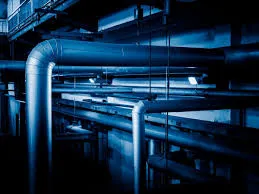Dec . 10, 2024 19:21 Back to list
Different Varieties of PVC Pipe Manufacturing and Their Applications
Understanding the Various Types of PVC Pipes and Their Manufacturing Process
Polyvinyl chloride, commonly known as PVC, is one of the most widely used plastic materials in the world. Due to its versatility, durability, and cost-effectiveness, PVC pipes have found applications across various sectors, including construction, plumbing, electrical work, and agricultural irrigation. In this article, we will explore the different types of PVC pipes and the manufacturing processes involved in their production.
Types of PVC Pipes
PVC pipes come in several varieties, each designed to meet specific requirements and applications. Here are the most common types
1. Schedule 40 PVC Pipes These pipes are well-known for their strength and rigidity. They are typically used in residential and commercial plumbing applications for cold water transportation. They can withstand substantial pressure and are resistant to corrosion and chemicals.
2. Schedule 80 PVC Pipes These are thicker than Schedule 40 pipes and are used in industrial applications where higher pressure ratings are necessary. Schedule 80 pipes are often employed in chemical processing, water treatment, and fire protection systems.
3. PVC Pipe for Electrical Conduits This type is specifically designed for electrical applications. It provides an effective barrier against moisture and is resistant to impact and abrasion, making it the ideal choice for protecting electrical wiring in residential and commercial buildings.
4. PVC Drain, Waste, and Vent (DWV) Pipes These pipes are used for drainage systems, such as sewage lines. DWV pipes are designed to handle gravity flow and low-pressure applications. They are typically employed in plumbing for both residential and commercial buildings.
5. Furniture Grade PVC Pipes Unlike standard PVC pipes, furniture-grade pipes are designed for visible applications, such as furniture construction or DIY projects. They usually have a smoother surface, offering a more aesthetically pleasing finish.
6. PVC Pressure Pipes These pipes are used in applications that require the safe transport of water and other liquids under pressure. They are commonly used in municipal water systems, irrigation, and various industrial processes.
all types of pvc pipes factory

Manufacturing Process of PVC Pipes
The manufacturing of PVC pipes involves several key steps
1. Material Preparation The process begins with the preparation of PVC resin mixed with various additives, including stabilizers, lubricants, and pigments. This mixture ensures the final product has the desired properties, including flexibility, heat resistance, and color.
2. Extrusion The blended PVC material is fed into an extruder, where it is heated and melted to form a viscous mass. The molten PVC is then forced through a die, which shapes it into the desired pipe diameter and thickness.
3. Cooling After extrusion, the hot pipe passes through a cooling bath where it is subjected to cold water, solidifying it into its final form. This process is crucial for enhancing the strength of the pipe.
4. Cutting Once cooled, the continuous length of pipe is cut into manageable sections based on predetermined specifications, making it easier for transportation and installation.
5. Quality Control Each batch of PVC pipes undergoes rigorous testing to ensure it meets industry standards. This includes tests for pressure resistance, impact strength, and chemical resistance.
6. Packaging and Shipping Finally, the finished pipes are packaged for shipment. Manufacturers may provide various end options, such as solvent welds or threaded connections, depending on customer requirements.
Conclusion
PVC pipes have revolutionized numerous industries, thanks to their flexibility and range of applications. Understanding the different types of PVC pipes and their manufacturing processes can help consumers and professionals make informed choices when selecting the right piping solution for their needs. With continued advancements in technology and materials, the future of PVC pipe manufacturing is promising, ensuring that it remains a vital component in modern infrastructure.
-
High-Quality PVC Borehole Pipes Durable & Versatile Pipe Solutions
NewsJul.08,2025
-
High-Quality PVC Perforated Pipes for Efficient Drainage Leading Manufacturers & Factories
NewsJul.08,2025
-
High-Quality PVC Borehole Pipes Durable Pipe Solutions by Leading Manufacturer
NewsJul.08,2025
-
High-Quality PVC Borehole Pipes Reliable PVC Pipe Manufacturer Solutions
NewsJul.07,2025
-
High-Quality UPVC Drain Pipes Durable HDPE & Drain Pipe Solutions
NewsJul.07,2025
-
High-Quality Conduit Pipes & HDPE Conduit Fittings Manufacturer Reliable Factory Supply
NewsJul.06,2025

